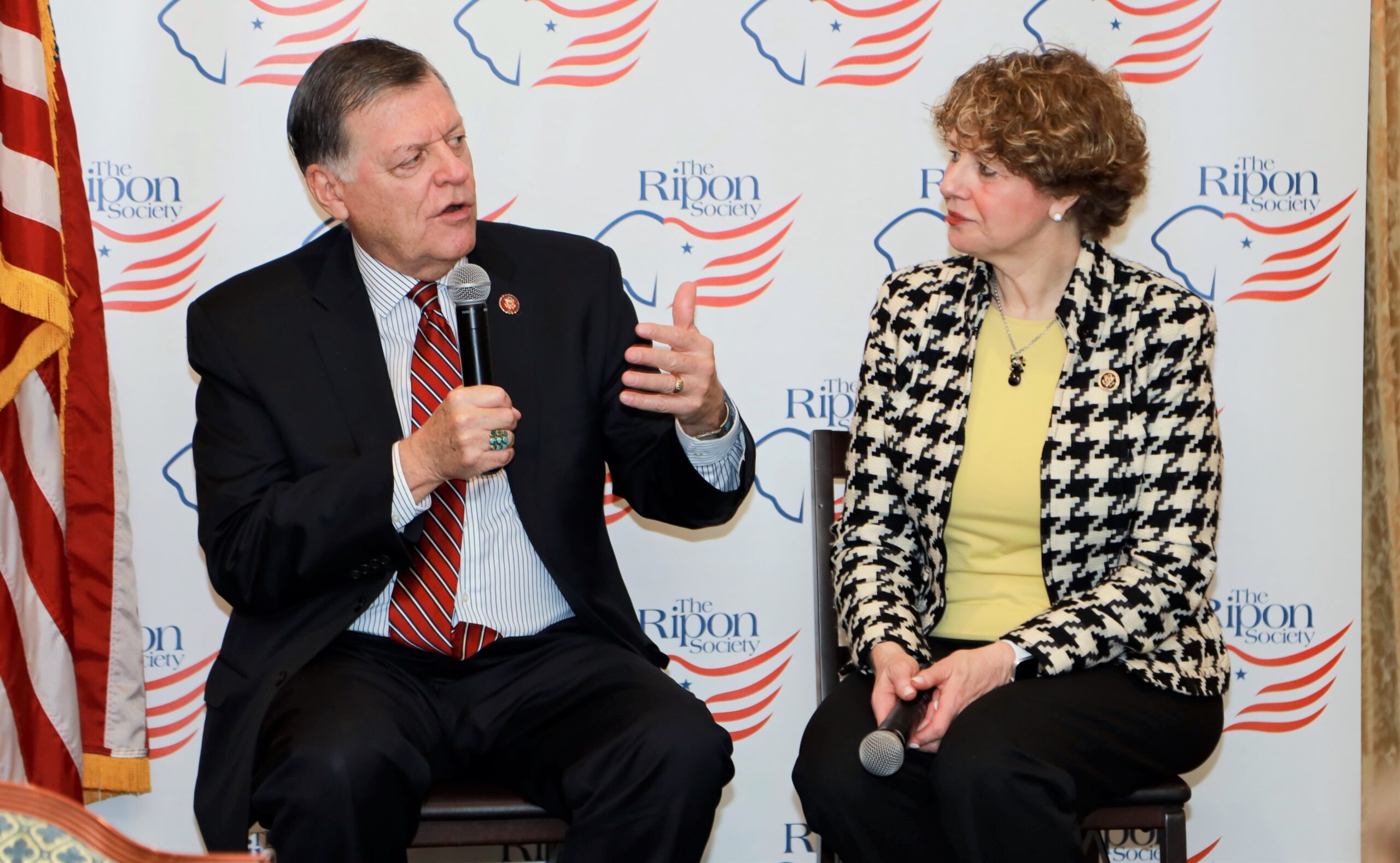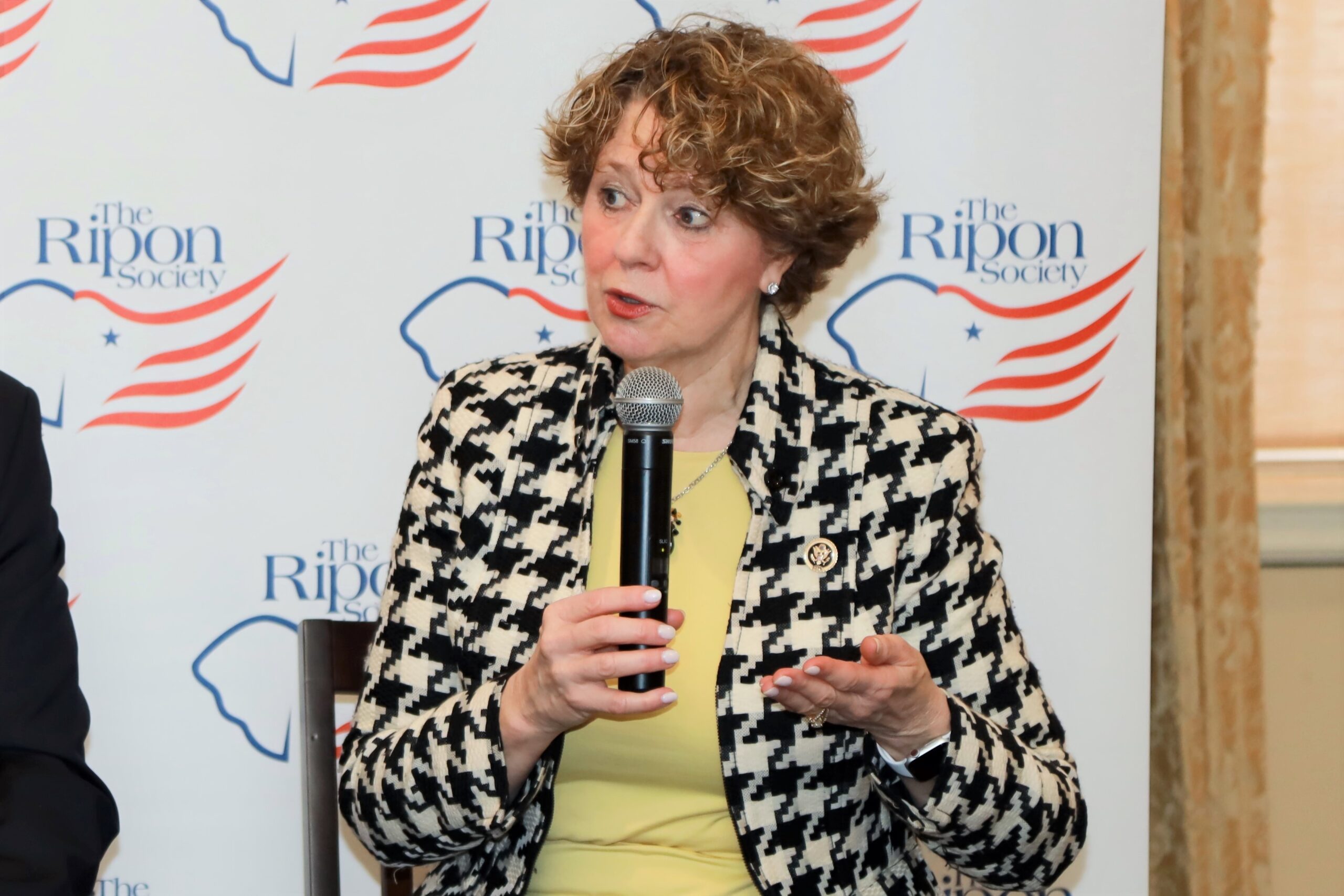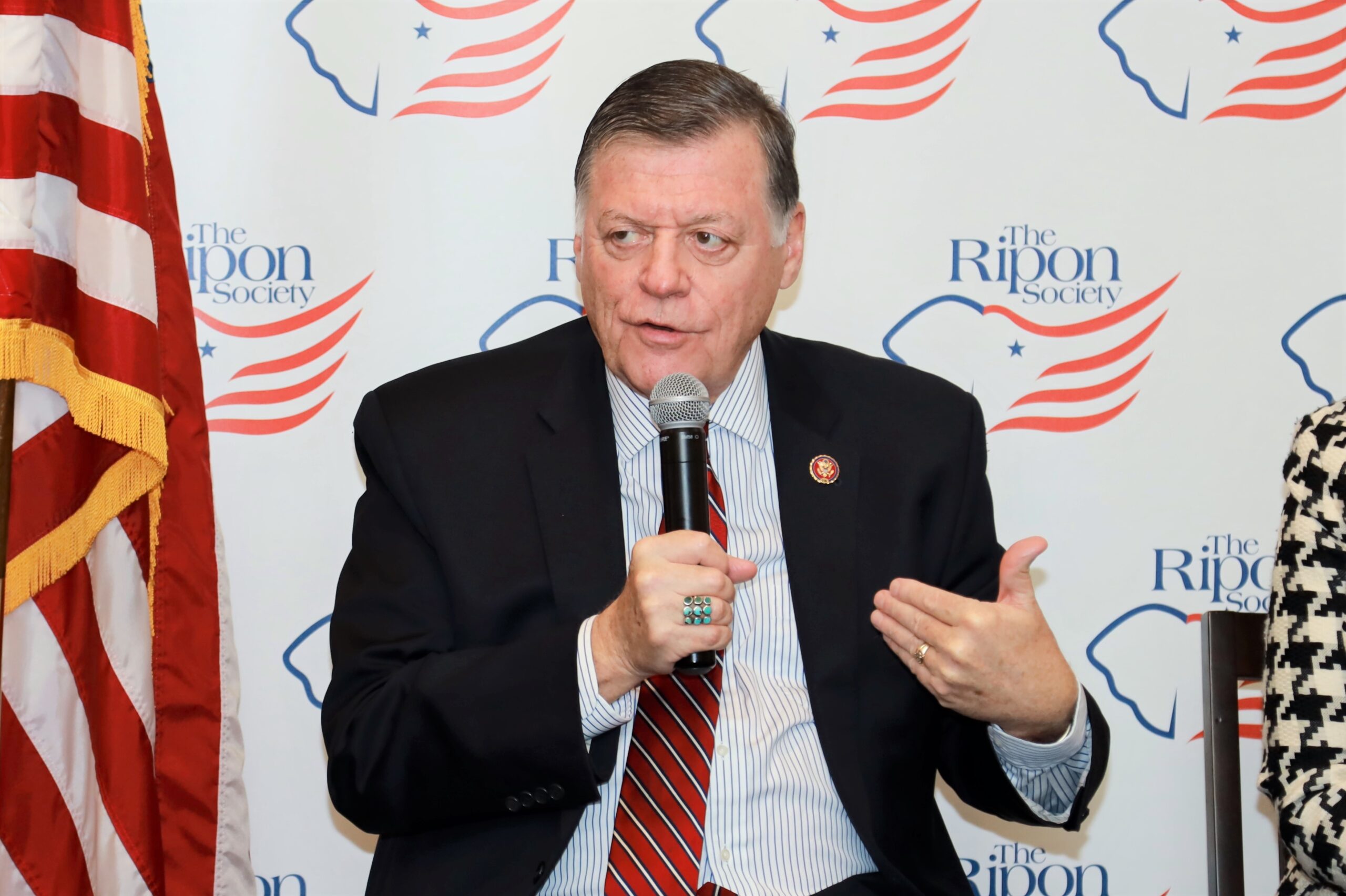 Cole and Brooks Tout Importance of Funding Pandemic Preparedness & Response
Cole and Brooks Tout Importance of Funding Pandemic Preparedness & Response
WASHINGTON, DC —While concern over the spread of the novel coronavirus grows among those in the United States and around the world, The Ripon Society hosted a breakfast discussion yesterday with two leaders in Congress known for their track record when it comes to preparing the U.S. for global pandemic threats.
Those leaders were U.S. Rep. Tom Cole (OK-4) and U.S. Rep. Susan Brooks (IN-5). As longtime Congressional advocates for biodefense and pandemic research, they discussed what they have done to shore-up America’s preparedness and what we can expect with this outbreak of the novel coronavirus. Brooks kicked off the discussion by bringing up the passage of the Pandemic and All-Hazards Preparedness Act (PAHPA) thirteen years ago, and how the sweeping legislation laid the groundwork for the United States’ current public health policy.
“It was originally authorized in 2006,” stated the Indiana lawmaker, “and that was in response in large part to the anthrax attacks that some of you may have experienced if you were on Capitol Hill at that time. I was a U.S. attorney and I actually received one of those hoax letters. One of my staff opened a letter with the powder in it and back then that was a significant problem around the country.
“So I got engaged in this back then. And then when I came to Congress, Mike Rogers of Michigan, who had been a champion for this, actually asked me to get involved with this. I had no clue what PAHPA was. I had not heard about it. And it’s one of those types of bills and one of those types of issues that people just expect us in government to take care of. They really don’t want to know about it until they need it.”
Now, with the recent genesis and spread of the novel coronavirus, the Trump Administration has created a task force to monitor and address the outbreak. Tapped to lead the task force is Vice President Mike Pence, a move that Brooks – the Co-chair for the Congressional Biodefense Caucus – heralded as the right decision.
“He appointed the Vice President last week, and while some people might say he doesn’t have a medical background, that was actually the number one recommendation in the Blue Ribbon Study Panel on Biodefense – taking the office of the Vice President and putting them in charge of the biodefense strategy. This wasn’t just the President coming up and tapping former Governor Mike Pence, who has a background in public health issues, it was the recommendation of the Task Force. And now he’s also brought in Ambassador Debbie Birx. She is a rock star in this community. She led the PEPFAR efforts for the country. She’s a doctor, she’s a Colonel, she’s an infectious disease expert. She is amazing.”
Brooks concluded her remarks by highlighting some of the other steps Congress has taken in recent years to prepare for pandemics – steps, she added, that her colleague from Oklahoma helped spearhead.
“Under Tom’s leadership,” she observed, “we now have an emerging infectious disease rapid response fund. We are trying to not always get sucked into waiting for supplementals so government can act. We’re bolstering our strategic national stockpiles. We’re also investing more in hospital preparedness programs. Because at the end of the day, that patient’s going to walk into a clinic, they’re going to go to their primary care doc, or they’re going to maybe go into a hospital. And so we need to make sure that all health care providers are prepared for this.
Cole agreed.
“There’s actually a really good story here from both a Congressional and a Republican standpoint,” the veteran appropriator stated. “I’m not saying that anybody’s happy with what we’re dealing with right now, but we’re certainly not dealing with this unprepared or with no thought having been given to it – which is kind of a line that’s out there right now. It’s quite the opposite.”
“When I became Labor H Chairman, I spent a lot of time talking to staff, talking to other people who are interested in this area, and frankly, thinking through what the real issues were. Because one of the things that really alarmed me is that we had not increased funding for the National Institute of Health for 12 years, even though we’re the party that had doubled that between the late ‘90s and 2003. But neither we nor the Democrats did anything about it.”
“Look at strategic stockpile, look at CDC. All of them had been underfunded – basically flat funding. And it continued through the era of sequester and across the board cuts. We were really poorly prepared. A phrase I used to use back then when I would talk to my colleagues or talk to the media was, ‘Look, you’re a lot more likely to die in a pandemic than in a terrorist attack.’ That’s true, and you’re actually seeing that unfold today. This is defending the American people, just like the Pentagon budget is. Actually, it’s more applicable to the average American than every weapon system we own. And I say that as a defense hawk.”
While health research and disease prevention funding took a decade-long hit, Cole explained that Congress managed to – in a bipartisan fashion – begin the process of course-correcting just in time for this new virus.
“If you look over the last five years, NIH funding is up 39%. CDC funding is up 24%. Strategic stockpile is up north of 30%. It was because of the Appropriations Committee. When I was Chairman and came up with the idea, ‘Hey, let’s have a rapid response for an infectious disease,’ it took me two years to convince the Senate. But we’re sure glad we have it this year.”
“We can literally sit here now and say that we’ve been thinking about this for a long time, and we’ve taken the steps. Now, is the execution perfect? No, but it’s actually been much better. We had a testing kit problem. That’s really been the only real problem in this, and that’s been remedied and we’re moving on. I cut people a lot of slack when you’re dealing with a virus nobody has ever seen before and one that starts someplace else in the world.”
Cole wrapped up his remarks by emphasizing that even though work still needs to be done to fully address the novel coronavirus, he is proud of the work done in recent years to prepare and protect the American public when it comes to global pandemic threats.
“This is a good story for Congress, because it saw ahead, frankly more than either of the last two administrations. This is a good story for Congress because it funded the vision, and it’s continued to fund that vision in a bipartisan way in a split House and Senate.”
To view the remarks of Brooks and Cole before the Ripon Society breakfast discussion yesterday morning, please click on the link below:
The Ripon Society is a public policy organization that was founded in 1962 and takes its name from the town where the Republican Party was born in 1854 – Ripon, Wisconsin. One of the main goals of The Ripon Society is to promote the ideas and principles that have made America great and contributed to the GOP’s success. These ideas include keeping our nation secure, keeping taxes low and having a federal government that is smaller, smarter and more accountable to the people.





